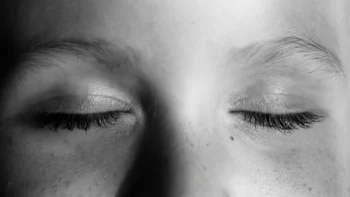With some eye conditions, the warning signs can be so subtle that they are easy to miss. Glaucoma, which refers to a group of eye conditions that cause damage to your optic nerve, is no exception.
Read on to find out more about the various types, signs, and symptoms of glaucoma, and what to do if you think you may have it.
What Is Glaucoma?
Glaucoma is not one single condition. Rather, there are several different types of glaucoma with varying causes. These types include:
- Open-angle glaucoma
- Normal-tension glaucoma
- Angle-closure glaucoma
- Congenital glaucoma
- Secondary glaucoma
With every type, the nerve that connects your eye to your brain (called the optic nerve) is damaged. Although there are several theories about what causes this damage, the precise cause is largely unknown. However, scientists have determined that it is linked to a buildup of pressure on your eye.
There are also many risk factors for glaucoma. You may have a higher chance of developing this condition if you:
- Are African American and over age 50
- Are Latin American and over age 65
- Have diabetes
- Have a sibling or parent with glaucoma
How Do I Know if I Have Glaucoma?
It can be difficult to determine whether or not you have glaucoma on your own. Because there are usually no related symptoms or pain, the most common type of glaucoma (open-angle) is actually the hardest to catch.
With open-angle glaucoma, the damage to your vision is very gradual. However, once it occurs, it cannot be reversed.
People living with this condition often do not know they have it until later in life when they notice changes in their vision. At this point, the condition is typically already in an advanced stage. This is one reason glaucoma is the leading cause of blindness in people over age 60.
If you have any risk factors for glaucoma, it’s crucial to schedule annual or biennial visits to your eye doctor. Early diagnosis and treatment gives you the best chance of maintaining your vision.
As for the other types of glaucoma, there are some signs and symptoms to watch out for. They include:
- Blind spots in your side (peripheral) or central vision
- Strong headaches
- Blurred vision
- Nausea and/or vomiting
- Tunnel vision
- Seeing halos around lights
- Eye redness
I Think I Have Glaucoma. What Do I Do?
If you have any of the risk factors for glaucoma or have exhibited any of the symptoms or signs of having it, schedule an appointment with an eye doctor right away.
At your appointment, your doctor will likely ask you about your history and perform a thorough eye exam. If you are diagnosed with glaucoma, your doctor may recommend any of the following treatments:
- Laser treatments
- Medicated eye drops
- Minimally invasive procedures (also called MIGS procedures)
- Traditional glaucoma surgeries
Sometimes, reaching optimum recovery may require a combination of two or more of these treatments.
If you’re concerned whether your vision issues could be due to glaucoma, don’t wait to find out. The longer you wait, the more irreversible damage may occur. Contact us today for more information or to schedule an appointment.





